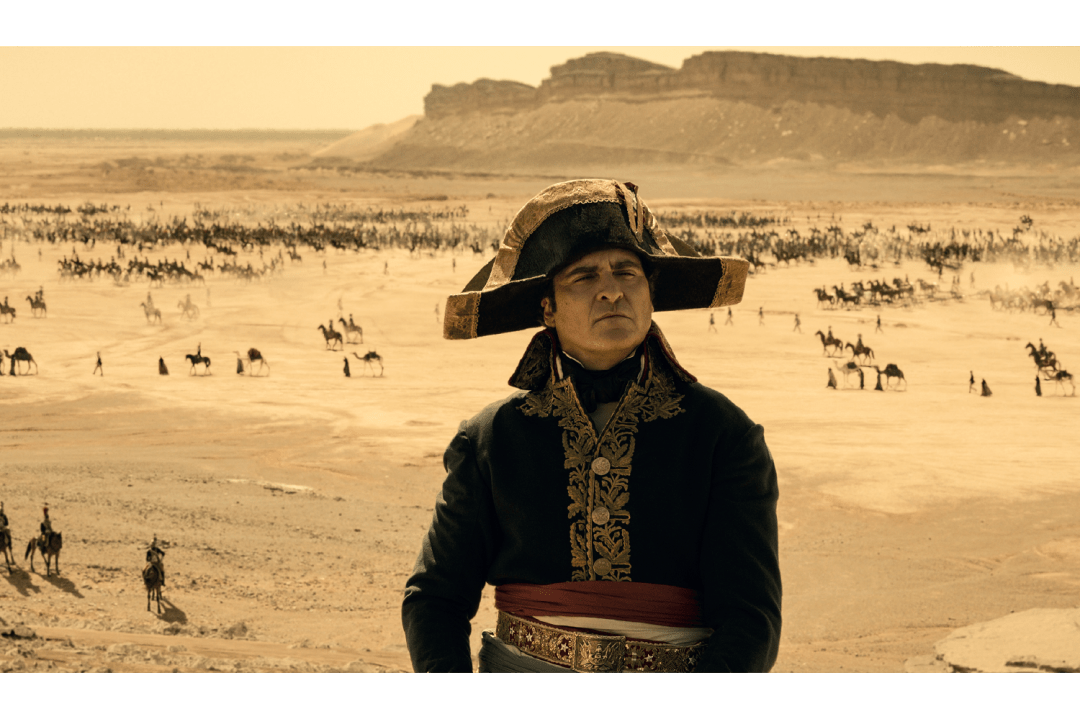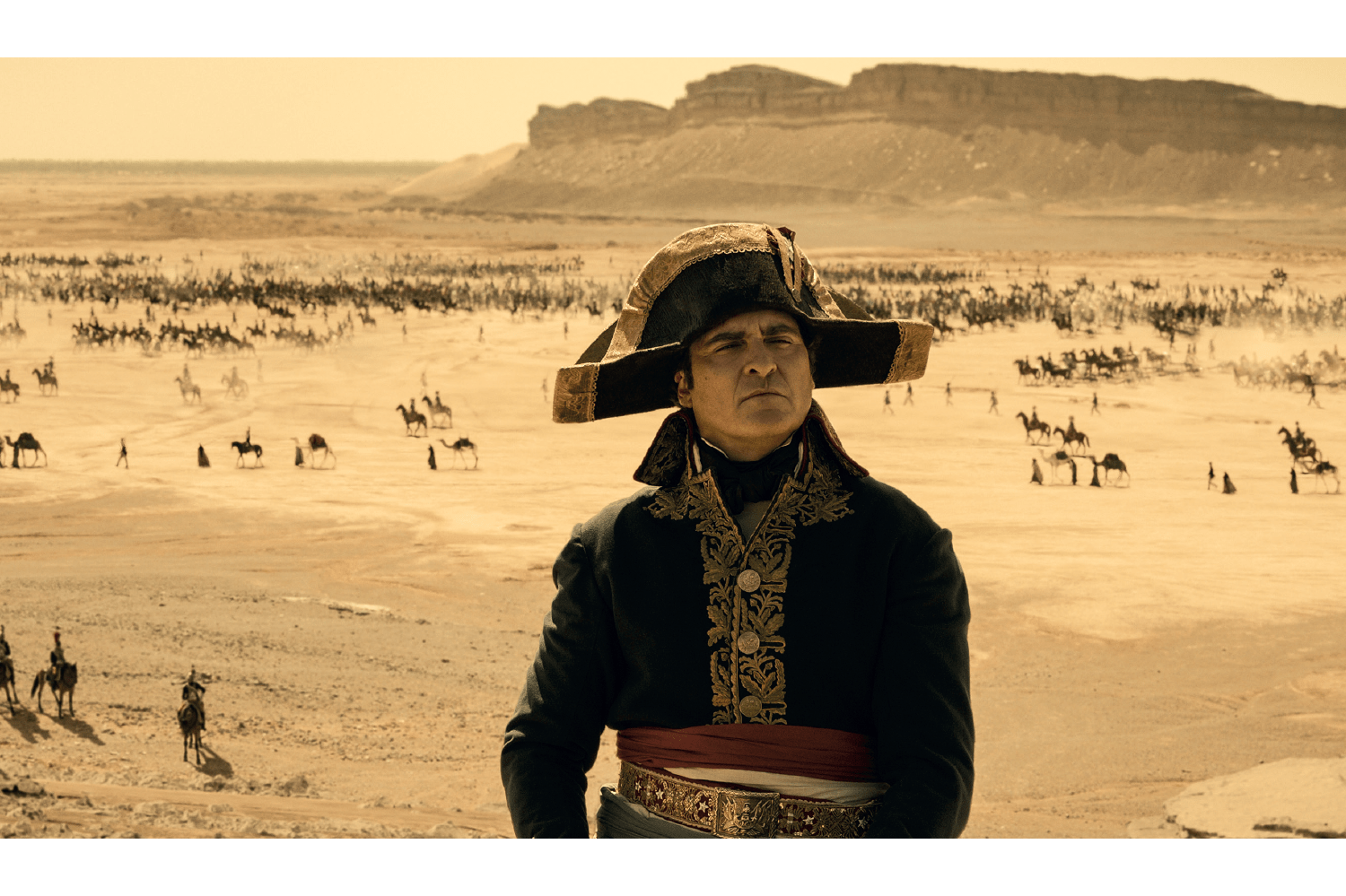Ridley Scott’s Napoleon, starring Joaquin Phoenix, has a running time of two hours and 40 minutes, which is scant by today’s standards, but don’t worry: a four hour-plus director’s cut is on its way. So this is Scott’s Napoleon Abridged, you could say, and it does have the feel of a film that’s been scissored to death. The battle sequences are spectacular but the jackhammer cutting-style – hang on, how did he get from there to here? – means the storytelling is hurried and confusing.
I’m not too sure about this Napoleon either. Did you know one of the greatest military leaders in world history was essentially a man-child? Phoenix, always a strong, intense screen presence, plays Napoleon as petulant rather than as a brilliant strategist.
I hope, pray, I never again see a horse’s chest blown open by a cannonball
It’s not a cradle-to-grave biopic, as Napoleon is a young man when we first encounter him and there is no spooling back in time. ‘He came from nothing. He conquered everything,’ says the film’s tagline. But what was the ‘nothing’? What was the landscape that formed him? We’re never told. The film opens as he arrives in revolutionary Paris to witness the beheading of Marie Antoinette, which he never did, but Scott, and his screenwriter (David Scarpa) seem happy to play fast and loose with the facts. (‘Were you there? No, so eff off,’ has been Scott’s response to historians.)
This Napoleon, who has an American accent, is ascending the military political ladder fast due to his war acumen. An early sequence shows us the Siege of Toulon, and I hope, pray, I never again see a horse’s chest blown open by a cannonball. Other spectacular set-pieces include Austerlitz and Waterloo, where Rupert Everett hams it up as the Duke of Wellington. They are Scott’s artistic vision. But I do wonder: now CGI and other modern effects are so powerful is it even possible to make a non-spectacular set-piece any more?
Certainly more work is put into horses – and soldiers – getting blown up than in developing rich, full, plausible characters. Napoleon’s other great passion is for Josephine (an electric Vanessa Kirby), the aristocratic widow who will become his first wife and Empress and who has bewitched him. The relationship is sadomasochistic and their scenes are compelling, but Josephine remains opaque throughout. Why did she torment him and why did she then stop tormenting him? What was her motivation?
The end of their marriage should tear your heart out but there’s not enough depth on either side to make it anything other than flat. Meanwhile, there is the obligatory comedy, as when Napoleon, who is jealous of Britain’s navy, screams at a British official: ‘You think you’re so great just because you have boats!’ I’m not sure Scott set out to ridicule Napoleon but he often does. One night at dinner Napoleon slams the table with his fist and declares: ‘Destiny has brought me this lamb chop!’ He is also very, very bad in bed.
Unless you’re an expert or have committed Wikipedia to heart, the history will confuse. Exiled to Elba, Napoleon escapes and raises a huge army in France, just like that. We learn very little about the politics that put him in power and kept him there, or about the enemies who want him out of power and also, what is he doing in Egypt right now? Perhaps that’s all in the longer version.
I was put in mind of my first job in journalism when I overheard an old hack handing over a story that was too long and saying: ‘I’m sorry, I didn’t have the time to write a shorter piece.’ And therein lies the skill.







Comments